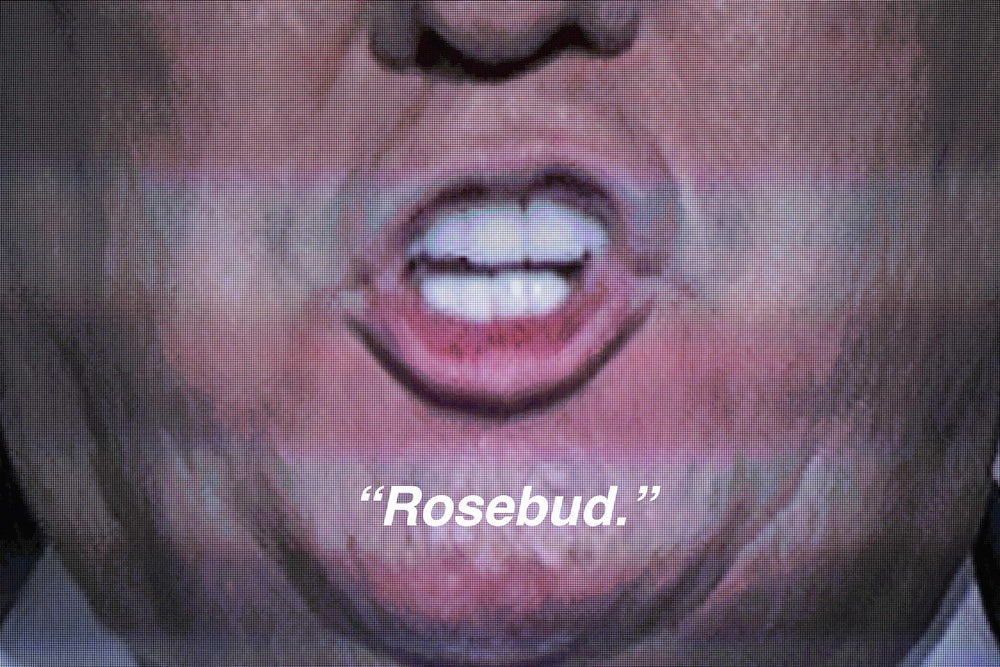Donald Trump’s chances of winning the presidential election are vanishingly small, and he knows it. In a desperate attempt to salvage his disastrous campaign, he has intensified his exaggerations about voter fraud and invented conspiracies about the election being “rigged” by “Crooked Hillary” and “the dishonest and distorted media.” He’s even called Republican leaders “naive” for not defending his unhinged rhetoric. Meanwhile, reports on Monday revealed that Jared Kushner, Trump’s son-in-law, had spoken with an investor about the possibility of a Trump-branded cable news network, presumably to monetize the fan base that the nominee has amassed in his 2016 run.
These two moves are connected; they’re intertwined fantasies that offer Trump an emotional lifeline. Trump’s claim of betrayal by a corrupt system allows him to sustain the myth that he’s winning, and that if he somehow doesn’t emerge victorious on November 8, it’s because the election was stolen from him. Such rhetoric also strengthens his bond with his followers, making them likely loyal viewers of a future Trump TV network.
Yet Trump TV, as The New Yorker’s Ryan Lizza and Talking Points Memo’s Josh Marshall have persuasively argued, seems like a pipe dream. It’s prohibitively expensive to start a cable network, the TV news market is already crowded, and ventures to create celebrity-centered channels (including efforts by famous figures as various as Oprah, Sarah Palin, and Glenn Beck) have all struggled or failed. Trump TV might exist as some sort of internet platform, but that’s unlikely to secure either the attention or financial success that Trump craves.
Without such an outlet, though, Trump will have few other sources of solace. New York Times columnist David Brooks recently wrote, with equal parts pity and disdain, about “Donald Trump’s Sad, Lonely Life,” describing him as a “friendless” man who “was a germophobe through most of his life and cut off contact with others.” Well, Trump’s life is about to get a whole lot sadder, a whole lot lonelier.
By running a bigoted campaign, and being revealed as a sex predator, Trump has become massively unpopular. This will hurt his social standing significantly. It’s hard to imagine he’ll be treated with the same indulgence by the jet set that he has spent his life cultivating. To be sure, Trump will still have millions of fans among the Republican base, but in general they are not the sort of people Trump goes golfing with at his Mar-a-Lago estate in Florida. Trump used to relish hobnobbing with politicians like Bill Clinton and Mitt Romney, but they, and figures of their stature, now shun him. Moreover, many of his hangers-on, who were in for the ride as long as long as it promised publicity and money, will abandon him after he loses. It’s unlikely that Kellyanne Conway will stick around long after November 8. Much of the Republican Party, which is keeping Trump at arm’s length as he implodes, will soon be treating him like a pariah.
It’s not just a social loss that Trump will suffer, but also, perhaps even more sorely, a financial one. The Trump brand has been tarnished by his toxic mouth. Whereas his name was once associated with high-end (if garish) luxury items, now it’s synonymous with racism, xenophobia, and boasts about sexual assault. The Times reported Monday that the Trump brand is being hurt by a spontaneous boycott. “Across the country,” Michael Barbaro wrote, “voters alarmed by the tenor of Mr. Trump’s campaign and the emerging accounts of his personal conduct are engaging in spontaneous, unorganized and inconspicuous acts of protest that take direct aim at perhaps his most prized possession: his brand name.” There may not be many new hotels or golf courses in Trump’s future.
If Trump’s revenue from licensing his brand diminishes, it’ll come at a time when he’s facing mounting legal costs. The Trump University lawsuit is winding its way through the courts. The recent evidence that Trump used the Trump Foundation to pay for personal expenses is likely to cause expensive legal headaches. And one or more of his many accusers may decide to take him to court.
In sum, post-election Trump is likely to become poorer and more socially isolated. Like Sarah Palin, the Republican vice presidential nominee in 2008, he might keep wading into current politics on social media, as a way to keep his name alive. But Palin’s star quickly faded after her ticket lost the election and, months later, she resigned from the governorship of Alaska. Guest appearances on Fox News, and a single season of the TLC reality show Sarah Palin’s Alaska, weren’t enough to keep her in the mainstream limelight. Similarly, Trump without a political movement will be a toothless loudmouth. The media will stop paying attention to him, and it will drive Trump to despair.
Trump has repeatedly said that Citizen Kane, the classic film by Orson Welles, is his “all-time favorite movie.” There are obvious parallels between the movie’s titular anti-hero and Trump. Charles Foster Kane was the spoiled child of great wealth, who dabbled in populist politics and almost won high-office before being undone by a sex scandal. In his old age, Kane ends up friendless in his vast estate of Xanadu, taken care of by servants but cut off from humanity. Could Mar-a-Lago be the new Xanadu?
There is a key difference between Citizen Kane and Trump’s story. Kane uses his wealth to build a media empire. If Trump ultimately decides not to do likewise, there will be only one way for him to escape Kane’s sad, lonely fate. Trump’s sole remaining path for being taken seriously after this election is to do the one thing that he’s proven really good at: winning Republican primaries. The greatest danger of Trump’s impending irrelevance, then, is that it could fuel his desire to run again in 2020.
